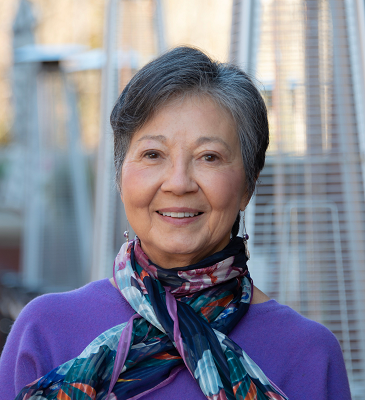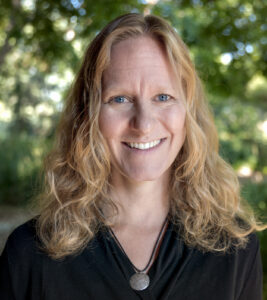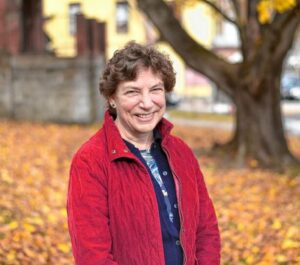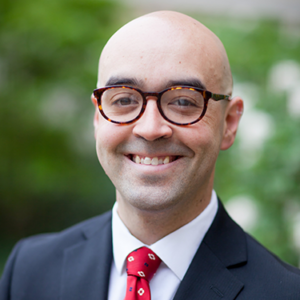
Moral Injury from Climate Change: The Work of Chaplains
Occurred on February 29, 2024
We are most often exposed to news about climate change in the context of the natural world — sea level rise, warming atmosphere, severity and frequency of storms — and the attendant damage to ecosystems and all life forms on our planet. Recently, there has been more research and exploration of the moral costs of a climate-changed world and ways we might cultivate moral resilience by learning from other expressions of moral injury such as that which veterans of armed conflict have suffered.
Dr. Rita Nakashima Brock shared her deep experience in the field of moral injury, placing it in relation to moral conflict, moral distress, and PTSD, and strategies for supporting resilience as it relates to chaplaincy and climate change in diverse contexts such as campus ministry and disaster relief. Practicing chaplain Liz Farmer offered a chaplain’s perspective grounded in lived experience serving vulnerable populations, such as unhoused people.
Our presenters and hosts together explored ways to address moral suffering (as well as moral distress, moral apathy, and moral outrage) in the field and support the development of moral resilience. The speakers shared the conviction that all chaplains need to be climate chaplains, regardless of setting or population served.
View the conversation, recorded on February 29, 2024 below:
Meet Our Presenters
 Rita Nakashima Brock, Rel. M., M.A., Ph.D., was born in Japan and raised in a Buddhist family for six years before being moved to the U.S. and being raised in the military. She is the first Asian American woman to earn a doctorate in theology. She has been Senior Vice President for Moral Injury Programs at Volunteers of America since 2017. An award-winning author, she was a professor of religion, women’s studies, and Asian American Studies for 18 years, including holding the Endowed Chair in the Humanities at Hamline University from 1990-97. From 1997-2001, she was Director of the Bunting Institute / Radcliffe Institute Fellowship Program at Harvard University. From 2001-2002, she was a fellow at the Harvard Divinity School Center for Values in Public Life, and from 2002-2012, she was a visiting scholar at the Starr King School for the Ministry at the Graduate Theological Union in Berkeley, CA. From 2012-2017, she co-founded and directed the Soul Repair Center at Brite Divinity School. Dr. Brock is the co-author of one of the first books written on moral injury, Soul Repair: Recovering from Moral Injury After War (Beacon 2012), as well as Casting Stones: Prostitution and Liberation in Asia and the United States (1996) with Susan Thistlethwaite, Proverbs of Ashes: Violence, Redemptive Suffering, and the Search for What Saves Us (2001), and Saving Paradise: How Christianity Traded Love of This World for Crucifixion and Empire, both with Rebecca Parker. Saving Paradise was selected by Publisher’s Weekly as one of the best books in religion in 2008 and was a finalist for the American Academy of Religion Award in Reflective and Constructive Theology. Her first book, Journeys By Heart: A Christology of Erotic Power, won the Crossroad Press prize for the best manuscript in women’s studies in 1988.
Rita Nakashima Brock, Rel. M., M.A., Ph.D., was born in Japan and raised in a Buddhist family for six years before being moved to the U.S. and being raised in the military. She is the first Asian American woman to earn a doctorate in theology. She has been Senior Vice President for Moral Injury Programs at Volunteers of America since 2017. An award-winning author, she was a professor of religion, women’s studies, and Asian American Studies for 18 years, including holding the Endowed Chair in the Humanities at Hamline University from 1990-97. From 1997-2001, she was Director of the Bunting Institute / Radcliffe Institute Fellowship Program at Harvard University. From 2001-2002, she was a fellow at the Harvard Divinity School Center for Values in Public Life, and from 2002-2012, she was a visiting scholar at the Starr King School for the Ministry at the Graduate Theological Union in Berkeley, CA. From 2012-2017, she co-founded and directed the Soul Repair Center at Brite Divinity School. Dr. Brock is the co-author of one of the first books written on moral injury, Soul Repair: Recovering from Moral Injury After War (Beacon 2012), as well as Casting Stones: Prostitution and Liberation in Asia and the United States (1996) with Susan Thistlethwaite, Proverbs of Ashes: Violence, Redemptive Suffering, and the Search for What Saves Us (2001), and Saving Paradise: How Christianity Traded Love of This World for Crucifixion and Empire, both with Rebecca Parker. Saving Paradise was selected by Publisher’s Weekly as one of the best books in religion in 2008 and was a finalist for the American Academy of Religion Award in Reflective and Constructive Theology. Her first book, Journeys By Heart: A Christology of Erotic Power, won the Crossroad Press prize for the best manuscript in women’s studies in 1988.
 Liz Farmer (she/her) is an ordained chaplain and lay teacher of Zen Buddhism, under the guidance of Roshi Joan Halifax. She has served as a chaplain and meditation teacher in health care, education, and carceral settings. She currently works for Spiritual Care Services of Maine, where she provides telehealth chaplaincy as well as mobile outreach to people experiencing homelessness in Portland. Liz additionally co-leads a spiritual community in Southern Maine dedicated to the intersection of social justice and Buddhist teachings, and serves as a mentor for students in Upaya Zen Center’s chaplaincy training program. During her own chaplaincy training, Liz wrote a Masters level thesis on spiritual care for veterans experiencing moral injury, and has since taught on moral suffering and moral resilience in a variety of settings.
Liz Farmer (she/her) is an ordained chaplain and lay teacher of Zen Buddhism, under the guidance of Roshi Joan Halifax. She has served as a chaplain and meditation teacher in health care, education, and carceral settings. She currently works for Spiritual Care Services of Maine, where she provides telehealth chaplaincy as well as mobile outreach to people experiencing homelessness in Portland. Liz additionally co-leads a spiritual community in Southern Maine dedicated to the intersection of social justice and Buddhist teachings, and serves as a mentor for students in Upaya Zen Center’s chaplaincy training program. During her own chaplaincy training, Liz wrote a Masters level thesis on spiritual care for veterans experiencing moral injury, and has since taught on moral suffering and moral resilience in a variety of settings.
Meet Our Hosts
 The Rev. Alison Cornish serves as the Coordinator of the Chaplaincy Initiative at the BTS Center. Alison spent the first half of her professional life working as an historic preservationist and architectural historian, primarily in New England and on Long Island, NY. After 20 years of work with museums, municipalities and nonprofit organizations, Alison attended Andover Newton Theological Seminary in response to a felt sense of call directly from Earth to address what is it that we are doing in our daily lives and habits that is destroying the planet that we inhabit. Following CPE, field education in interfaith work and parish ministry, and ordination in the Unitarian Universalist tradition, Alison served congregations on Long Island while also embarking on studies with the Buddhist teacher Joanna Macy and Dominican sister Miriam McGillis. Alison became a GreenFaith Fellow in 2013, and a Climate Reality Project presenter in 2017. She has served as Senior Director of Programs at Partners for Sacred Places, Executive Director of Pennsylvania Interfaith Power & Light, Director of Seminary and Congregational Initiatives at Interfaith Philadelphia, and as the Affiliated Community Minister at First Unitarian Church, Philadelphia. Alison’s facilitation work includes the Work That Reconnects, training-the-trainers for Civil Conversations, group practice of Nonviolent Communication, and the curriculum “Healthy Congregations.” A Program Consultant for the BTS Center since 2021, her work has focused on ecological and climate grief, religious imagination, and chaplaincy in a climate-changed world. Alison and her husband Pat live in Shelburne Falls, Massachusetts, on the unceded lands of the Nipmuc and Pocumtuc peoples, in the watershed of the Connecticut River. When not working, Alison can be found along, on, and in, a local natural body of water, currently the Deerfield River.
The Rev. Alison Cornish serves as the Coordinator of the Chaplaincy Initiative at the BTS Center. Alison spent the first half of her professional life working as an historic preservationist and architectural historian, primarily in New England and on Long Island, NY. After 20 years of work with museums, municipalities and nonprofit organizations, Alison attended Andover Newton Theological Seminary in response to a felt sense of call directly from Earth to address what is it that we are doing in our daily lives and habits that is destroying the planet that we inhabit. Following CPE, field education in interfaith work and parish ministry, and ordination in the Unitarian Universalist tradition, Alison served congregations on Long Island while also embarking on studies with the Buddhist teacher Joanna Macy and Dominican sister Miriam McGillis. Alison became a GreenFaith Fellow in 2013, and a Climate Reality Project presenter in 2017. She has served as Senior Director of Programs at Partners for Sacred Places, Executive Director of Pennsylvania Interfaith Power & Light, Director of Seminary and Congregational Initiatives at Interfaith Philadelphia, and as the Affiliated Community Minister at First Unitarian Church, Philadelphia. Alison’s facilitation work includes the Work That Reconnects, training-the-trainers for Civil Conversations, group practice of Nonviolent Communication, and the curriculum “Healthy Congregations.” A Program Consultant for the BTS Center since 2021, her work has focused on ecological and climate grief, religious imagination, and chaplaincy in a climate-changed world. Alison and her husband Pat live in Shelburne Falls, Massachusetts, on the unceded lands of the Nipmuc and Pocumtuc peoples, in the watershed of the Connecticut River. When not working, Alison can be found along, on, and in, a local natural body of water, currently the Deerfield River.
 Michael Skaggs, PhD is Director of Programs of the Chaplaincy Innovation Lab, overseeing the Lab’s education and networking initiatives as well as public relations. He is the host and producer of the Lab’s webinar series and editor of the Lab’s eBook series and newsletter.
Michael Skaggs, PhD is Director of Programs of the Chaplaincy Innovation Lab, overseeing the Lab’s education and networking initiatives as well as public relations. He is the host and producer of the Lab’s webinar series and editor of the Lab’s eBook series and newsletter.
Trained at the University of Notre Dame as a historian of American religion, Michael has a particular interest in interfaith dialogue and has served in innovative theological education programs. His work has appeared in Sociology of Religion, International Journal of Maritime History, American Catholic Studies, U.S. Catholic Historian, Books & Culture, and elsewhere. He previously served as Communications Director for Transforming Chaplaincy.
Meet The Chaplaincy Innovation Lab
 The Chaplaincy Innovation Lab (CIL), based at Brandeis University, launched in October 2018 to bring chaplains, theological educators, clinical educators and social scientists into conversation about the work of chaplaincy and spiritual care. As religious and spiritual life continues to change, the CIL sparks practical innovations that enable chaplains to nurture the spirits of those they serve and reduce human suffering.
The Chaplaincy Innovation Lab (CIL), based at Brandeis University, launched in October 2018 to bring chaplains, theological educators, clinical educators and social scientists into conversation about the work of chaplaincy and spiritual care. As religious and spiritual life continues to change, the CIL sparks practical innovations that enable chaplains to nurture the spirits of those they serve and reduce human suffering.
Meet The BTS Center
 With roots dating back to 1814, The BTS Center is a private foundation in Portland, Maine, building on the legacy of the former Bangor Theological Seminary. Today The BTS Center seeks to catalyze spiritual imagination, with enduring wisdom, for transformative faith leadership. Guided by the vision of human hearts renewed, justice established, and creation restored, The BTS Center offers theologically grounded workshops and retreats, learning cohorts, courses, public conversations, and projects of applied research, all focused around spiritual leadership for a climate-changed world.
With roots dating back to 1814, The BTS Center is a private foundation in Portland, Maine, building on the legacy of the former Bangor Theological Seminary. Today The BTS Center seeks to catalyze spiritual imagination, with enduring wisdom, for transformative faith leadership. Guided by the vision of human hearts renewed, justice established, and creation restored, The BTS Center offers theologically grounded workshops and retreats, learning cohorts, courses, public conversations, and projects of applied research, all focused around spiritual leadership for a climate-changed world.

